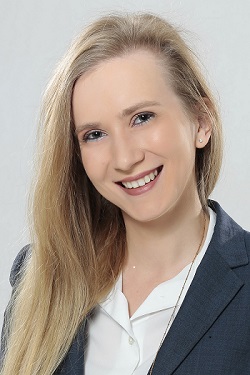
Iulia.revenco@kuleuven.be
Laboratory of Lipid Biochemistry and Protein Interactions
Department of Cellular & Molecular Medicine,
University of Leuven (KU Leuven), Belgium
Supervisor:
Prof. Marc Fransen
I received my BSc degree in Genetics and Cellular Biology at the faculty of Science and Technologies of University Claude Bernard Lyon 1 (UCBL), France. Wishing to focus on a specific field I chose master in oncology and obtained MSc degree at the Institute of Pharmaceutical and biological sciences of UCBL. In the frame of this master program I have worked under the guidance of Dr Krushna Patra Chandra in the laboratory of Dr. Nabeel Bardeesy, at the Massachusetts General Hospital Cancer Center in Boston, USA. My main focus was to understand the biology of a specific subtype of pancreatic cancer using in vitro 2D and 3D systems, different biochemistry and molecular biology tools. In this context we showed how a recurrent mutation of Guanine Nucleotide-Binding Protein G(S) Subunit Alpha (GNAS) in association with a concurrent mutation of Kras oncogene, drives pancreatic tumorigenesis. This process being mediated through Protein-Kinase-A – Salt-inducible Kinases (Sik1–3) signaling axis, and associated with induction of lipid remodeling and fatty acid oxidation. This unanticipated metabolic heterogeneity among Kras-mutant pancreatic neoplasms, that are traditionally considered highly glycolytic, opens new opportunities to repurposing existing drugs and finding new ways of treating patients.
Finally, this experience gave me the opportunity to immerse into the world of cancer metabolism which gradually led me to discover the exciting field of peroxisomes.
Project Title: Physiological Targets of peroxisome-derived hydrogen peroxide
We hypothesize that peroxisome-derived H2O2 is a key player in maintaining cellular redox homeostasist. Thus, the overall aim of my project is to gain more insight into how alterations in peroxisome-derived H2O2 metabolism influence the physiology of mammalian cells. The specific objectives of my project are: (i) to inventorize protein thiol targets of peroxisome-derived H2O2 in human Flp-In T-REx DD-myc-DAO HEK-293 cells. (ii) to study the role of peroxisome-derived H2O2 in retrograde signaling.(iii) to assess how acute and chronic doses of peroxisome-derived H2O2 affect mitochondrial morphology (e.g., shape, number, size, positioning), function (e.g., respiration), and interorganellar contact sites. (iv) to evaluate peroxisome and mitochondrial abundance and morphology in mammalian cells using artificial intelligence-based image analysis methods. (v) to validate the in cellulo findings in more disease-related cell types and tissues from control mice and mice suffering from peroxisomal deficiencies.
Finally, the endeavor of identifying and validating peroxisome-derived H2O2 targets in mammalian cells will give a fresh perspective to the scientific community, also outside the peroxisome field. In this context, it is my hope that, in long term, my findings may contribute to the development of redox therapies bringing novelty and improvement to patients’ treatment.
- My scientific interest
Now that I am devouring the peroxisome field with a focus on cell signaling and redox metabolism. And I still keep an eye on news from the cancer world.
1,506 total views, 1 views today
